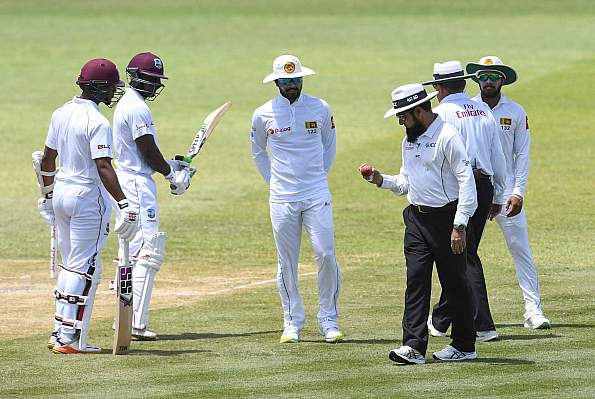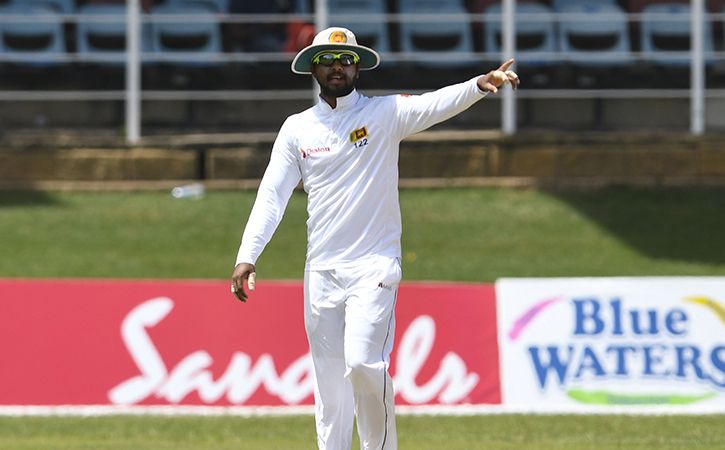Sri Lankan captain Dinesh Chandimal has been charged for breaching ICC Code of Conduct level 2.2.9 that relates to ‘Changing the condition of the ball’.

During the second Test between Windies and Sri Lanka at St. Lucia, on-field umpires Aleem Dar and Ian Gould decided to change the ball before the beginning of day 3 after they felt unhappy with the ball condition towards the end of day 2. In the addition, umpires decided to award five penalty runs to the Windies team in their running first innings.
Sri Lankan captain Dinesh Chandimal protested on that decision as he refused to field his team at the beginning on day 3. It took more than one hour when Chandimal’s team finally came out on the field as the day’s play resume without further interrupted.

Later the day, Sri Lanka Cricket (SLC) released a statement to back their players.
That release stated, “The team management has informed us that Sri Lankan players have not engaged in any wrongdoing.”
Now, Chandimal has been charged for breaching the ICC Code of Conduct level 2.2.9, the same one had been charged for Australian opener Cameron Bancroft during the controversial ball-tampering incident in the Cape Town Test in last March.
BREAKING: Sri Lanka captain Dinesh Chandimal has been charged for breaching Level 2.2.9 of the ICC Code of Conduct.
More to come… #WIvSL pic.twitter.com/EGU278hZug
— ICC (@ICC) June 17, 2018
According to the ICC Code of Conduct level 2.2.9, “Any action(s) likely to alter the condition of the ball which were not specifically permitted under clause 41.3.2 may be regarded as ‘unfair’. The following actions shall not be permitted (this list of actions is not exhaustive but included for illustrative purposes): (a) deliberately throwing the ball into the ground for the purpose of roughening it up; (b) applying any artificial substance to the ball; and applying any non-artificial substance for any purpose other than to polish the ball; (c) lifting or otherwise interfering with any of the seams of the ball; (d) scratching the surface of the ball with finger or thumb nails or any implement.”
According to the law, “The Umpires shall use their judgment to apply the principle that actions taken to maintain or enhance the condition of the ball, provided no artificial substances are used, shall be permitted. Any actions taken with the purpose of damaging the condition of the ball or accelerating the deterioration of the condition of the ball shall not be permitted.”
